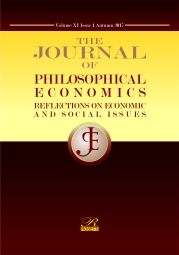The evolution of merchant moral thought in Tokugawa Japan
The evolution of merchant moral thought in Tokugawa Japan
Author(s): Ryan LangrillSubject(s): Philosophy, Social Sciences, Economy, Special Branches of Philosophy, Sociology, Philosophy of Science, Social Theory, Socio-Economic Research
Published by: Editura Rosetti International
Keywords: business history; moral philosophy; commerce;
Summary/Abstract: The Tokugawa Era of Japan is known for its domination by the shogunate, or warrior bureaucracy. While samurai capture the popular imagination, the merchant class of this era was changing their cultural narrative as well. The regime, officially Neo-Confucian, considered trade a vulgar and corrupting activity, but among commoners, especially in Osaka, a culture arose celebrating the virtue of commerce. Merchant scholars and commoners assailed the orthodoxy by putting forth alternate interpretations of Confucianism, and later by abandoning the entire Confucian framework. Their primary goal was to explore the nature of virtue and commerce, and justify their own place in the world. As a side effect, the marriage of virtue to commerce allowed a nexus of long-term relationships to arise, based in Osaka.
Journal: Journal of Philosophical Economics
- Issue Year: V/2012
- Issue No: 2
- Page Range: 109-122
- Page Count: 14
- Language: English

